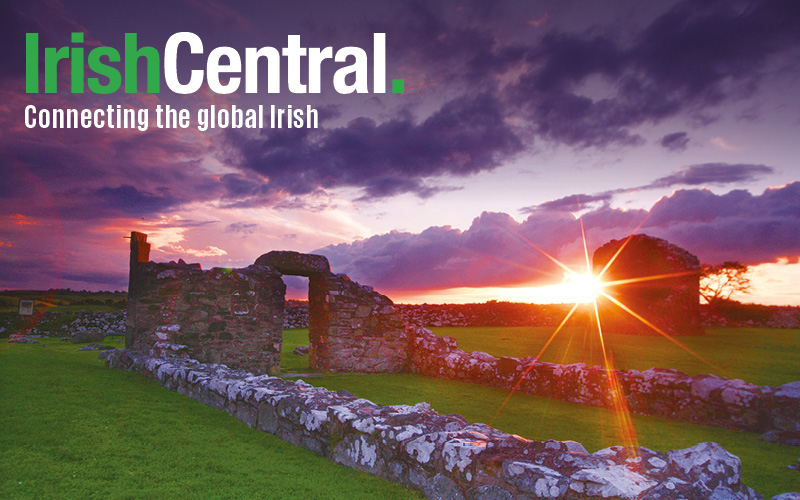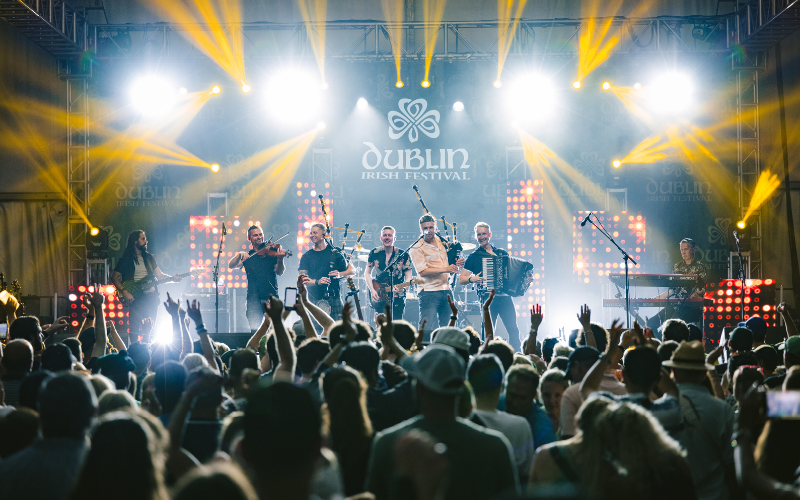In four and a half years a lot has changed in my home country of Ireland. As I sit here in a fancy little café (one of the few surviving the recession) nibbling on a croissant and sipping on a tea, it suddenly hits me that I don’t recognize my hometown of Tralee, Co. Kerry anymore.
There are more boarded up shop windows than there are open shop fronts, there are far fewer people on the streets and less cars on the road (and very few 2009 cars).
The crime rate is higher (last weekend I witnessed a massive brawl in a fast food restaurant resulting in a young lad having extensive brain injuries.) People look sadder and every third house is up for sale.
About an hour ago I popped into the bank, and there I met some old friends carrying out their business. It was lovely to have a brief catch up with each of them, but it also saddened me. In that short space of time three of them were quick to inform me they had lost their jobs.
One, an accountant, was let go three months ago and has been joining the dole queue outside the post office every week to collect his money from the state. “I have way too much time on my hands so do give me a call and we’ll meet for a coffee,” he said. I guess I’ll be buying the coffee!
A girl I know from our schooling days is also in the same boat. An architectural technician by trade, she had been working with the same company in Tralee for nine years.
Last week she received the news that she has three weeks to tie up her loose ends. The company she works for is closing it’s doors.
“I only bought the house (that comes with a € 1,200 mortgage) a year ago. It’s going to be a tough 2010,” she said.
An older gentleman I knew from working in the hotel industry when I was a teenager was also up in a heap. He was let go from his managerial position in a local hotel a few months ago and has not been able to find anything since.
“Go back to America girl,” was his advice to me. “I’d be gone in a shot if I was younger.”
It saddened me to see so much insecurity in their eyes and loss of spirit in their hearts.
When I was last home I was blown away by the amount of immigrants working in my small town. I thought it was wonderful. Tralee was becoming more like New York, a melting pot of cultures.
Unfortunately it didn’t last long. Today as I sit here in the coffee shop I realize all the staff are Irish.
A quick word with the young gentleman behind the counter informs me that when they opened three years ago it was just him, four Polish waitresses, a Lithuanian chef, a part time Irish girl (who was the owner’s niece) and an English hostess.
Today his work colleagues are all from Ireland, Kerry in fact.
“Some of the Polish left to go back home and the chef we had didn’t work out, so John (the boss) hired an Irish chef then,” he explains. “We need to give the jobs to our own now,” he said sternly.
Although I’m only home a week, I’ve had many a lunch and dinner in some of the restaurants in the town. The two most notable changes are, first, the nationality of the staff.
I’d say 90% of them are Irish. Four years ago Irish restaurant workers were nowhere to be seen. They had moved on to bigger and better things, and now four years later they are back.
Secondly, the price of food has reduced dramatically. Lunch, including a soda, is about five or six euro. A three course dinner -- if you get the early bird (and most restaurants are now doing early bird) -- is between 10 and 15 euro (and remember in Ireland that includes the tax and tip).
Prices have been slashed dramatically in an effort to draw in more customers and keep businesses afloat. It’s working for now.
Unlike four years ago people are less busy. Mainly because a lot of people are out of work.
But this trip home I find people have more time to sit and talk to me. They don’t have the money to jet set off to Europe or to Dublin for a long weekend.
In fact a lot of Irish people don’t have the money to go out on a Saturday night for a meal and a few drinks. But this too has its advantages.
I’m now invited to people’s homes and, like the olden days, we sit around a roaring fire (which I miss about living in New York) and we catch up on our lives. Four years ago all our catching up was done in a restaurant or in a bar. Not as personal, if you ask me.
After my little rendezvous in the café here I plan to do a little bit of shopping. I’ve been into Penny’s -- a popular department store that specializes in affordable clothing -- and couldn’t help dropping my jaw at the prices.
Before I left for New York six years ago I would have purchased a few tops for my trip to the Big Apple. On average I paid ***10 per top.
Today when I go into Penny’s I will be able to purchase three tops for ****10. As a result of their cost cutting measures, Penny’s are expanding and are one of the few stores benefiting from the recession.
Not everyone thinks the recession in Ireland is a bad thing. Speaking to the priest who officiated my grandmother’s funeral last week, he informed me over lunch that Saturday night and Sunday morning Mass are bringing people in their droves.
“This happens in times of recession. People turn to God and rightly so. People need hope and faith and where else can they get that only from the loving Lord,” he said. I guess he is right.
I too kind of agree with him. And of course it’s easy for me to say this as I don’t live in Ireland anymore, but I feel the recession has brought people together.
Friends and family depend on each other more, thus they have more interaction and relationships are deepened. Friendships are developed, and despite the ongoing murmurs of pay cuts and people loosing their jobs.
Irish people -- well, Kerry people anyway -- are more aware of each other’s needs and are there for each other. It warms my heart to see this.
At the end of the day it’s family that counts. The recession has brought people closer to each other, and after all, isn’t it the relationships we share with our family and friends the most important thing in this life?
Well, at least I think so.




Comments